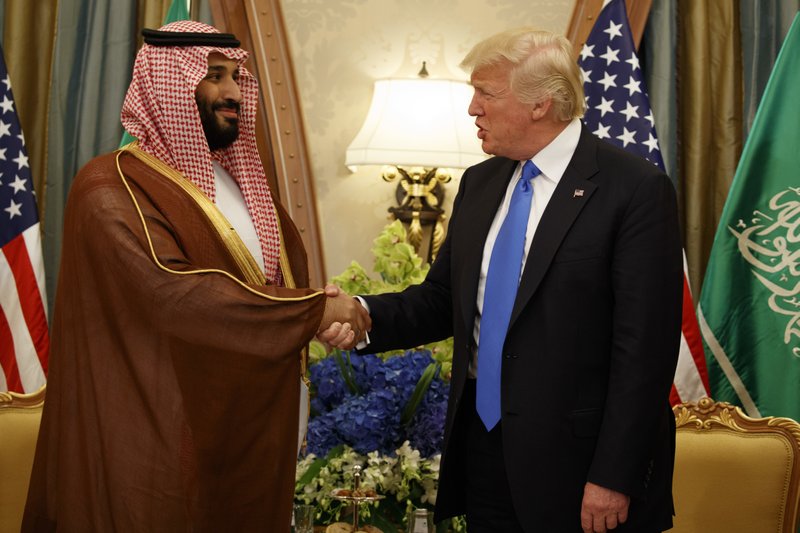Two American businessmen sought to leverage access to US President Donald Trump while angling for lucrative contracts from two Persian Gulf countries wanting to shift US foreign policy against Qatar, the Associated Press reported Monday.
GOP fundraiser Elliott Broidy and businessman George Nader reportedly worked to catch the president’s ear by passing along praise from the princes of the United Arab Emirates and Saudi Arabia, the Hill reported.
Broidy and Nader, who marketed themselves as having a back channel to the Oval Office, sought million-dollar contracts with the two Persian Gulf countries for their efforts, according to the AP investigation, which included dozens of interviews as well as the review of hundreds of pages of leaked emails between the two men.
The New York Times reported earlier this year that Broidy and Nader had worked to push Emirati and Saudi interests in the White House to take a hardline stance on Iran and Qatar.
According to the AP, this new tranche of emails further reveals their “ambitious, secretive lobbying effort to isolate Qatar and undermine the Pentagon’s longstanding relationship with the Persian Gulf country.”
The newswire had previously reported that Broidy and Nader sought to pass an anti-Qatar bill through Congress, while trying to hide their money trail related to such efforts.
Allegations and Denials
Chris Clark, one of Broidy’s lawyers, pushed back on the AP report, saying it “is based on fraudulent and fabricated documents obtained from entities with a known agenda to harm Mr. Broidy.”
“To be clear, Mr. Nader is a US citizen, and there is no evidence suggesting that he directed Mr. Broidy’s actions, let alone that he did so on behalf of a foreign entity,” Clark told the AP.
Broidy and his wife had filed a lawsuit in late March alleging the Qatari government has carried out a sophisticated disinformation campaign that aimed to tarnish his reputation. They did this, he argued, by hacking into his email accounts, stealing his data and then maliciously leaking the information to the press.
Some of the information passed on to the media outlets was forged, he said.
Nader’s lawyer, Kathryn Ruemmler, declined the AP’s request for comment. A senior Saudi official, however, confirmed to the newswire that the government had discussions with Nader, but never signed any contracts with either Nader or Broidy.
Broidy, who wrote summaries of his two meetings with the president, says he shared the two princes’ messages with Trump, the documents show.
According to these summaries, he tried to dissuade Trump from intervening on behalf of Qatar as well as quietly set up a meeting between Trump and the Abu Dhabi crown prince, Mohammed Bin Zayed of Abu Dhabi, who they referred to as “MBZ” their correspondence
Nader and Broidy were also working to get contracts with the Saudi crown prince, Mohammed bin Salman.
Neither Broidy nor Nader registered with the US government under the Foreign Agents Registration Act, a law intended to make lobbyists working for foreign governments disclose their ties and certain political activities.
FARA requires individuals who are working on behalf of foreign interests to register even if they do not get paid for such efforts—or they could face up to five years in prison or a maximum $10,000 fine.


